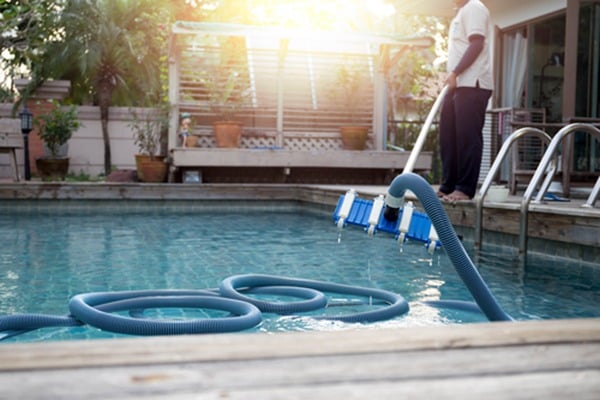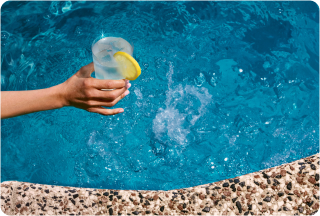What is a Pool Sweep and How Do You Maintain It?

You can't enjoy your pool if it's dirty. No matter the type of pool sweep or pool vacuum you have, AHS has tips to keep it working so you can enjoy the pool.


You can't enjoy your pool if it's dirty. No matter the type of pool sweep or pool vacuum you have, AHS has tips to keep it working so you can enjoy the pool.
Pool sweeps basically work like vacuum cleaners, only underwater. They roam your pool removing debris, saving you the time and effort of doing the job by hand.
Sweeping your pool is an important part of pool maintenance. Clearing foreign material from your pool keeps the water nice and inviting. Moreover, by eliminating the leaves and twigs they like to feed on, sweeping reduces the number of insects who'd like to use your pool.
Types of pool sweeps
Homeowners rely upon three basic types of pool vacuums to keep their pools clean.
Whatever type of sweep you choose, proper maintenance is essential. These pool sweep maintenance tips will help keep your unit operating efficiently.
Suction sweeps
Thinking about coverage?
Security for your home. Protection for your budget.
Pressure sweeps
Robotic sweeps
By following these basic maintenance steps, you’ll extend the life of your sweeper — and make sure your pool is ready for some summer fun. And to make having a swimming pool even less stressful, American Home Shield offers optional coverage for built-in pools and spa equipment.
See how a protection plan can help cover pool and spa breakdowns.

AHS assumes no responsibility, and specifically disclaims all liability, for your use of any and all information contained herein.
Have a plan for your home when things don't go according to plan
Shop Home WarrantiesStaging